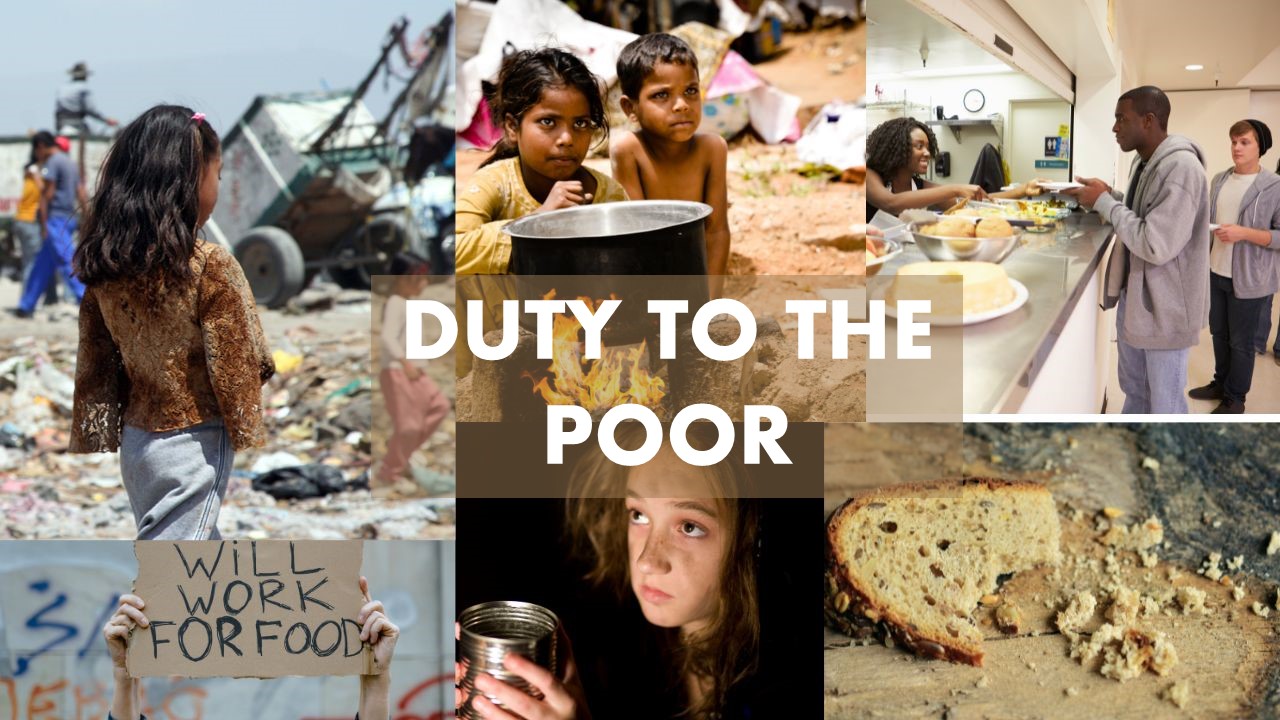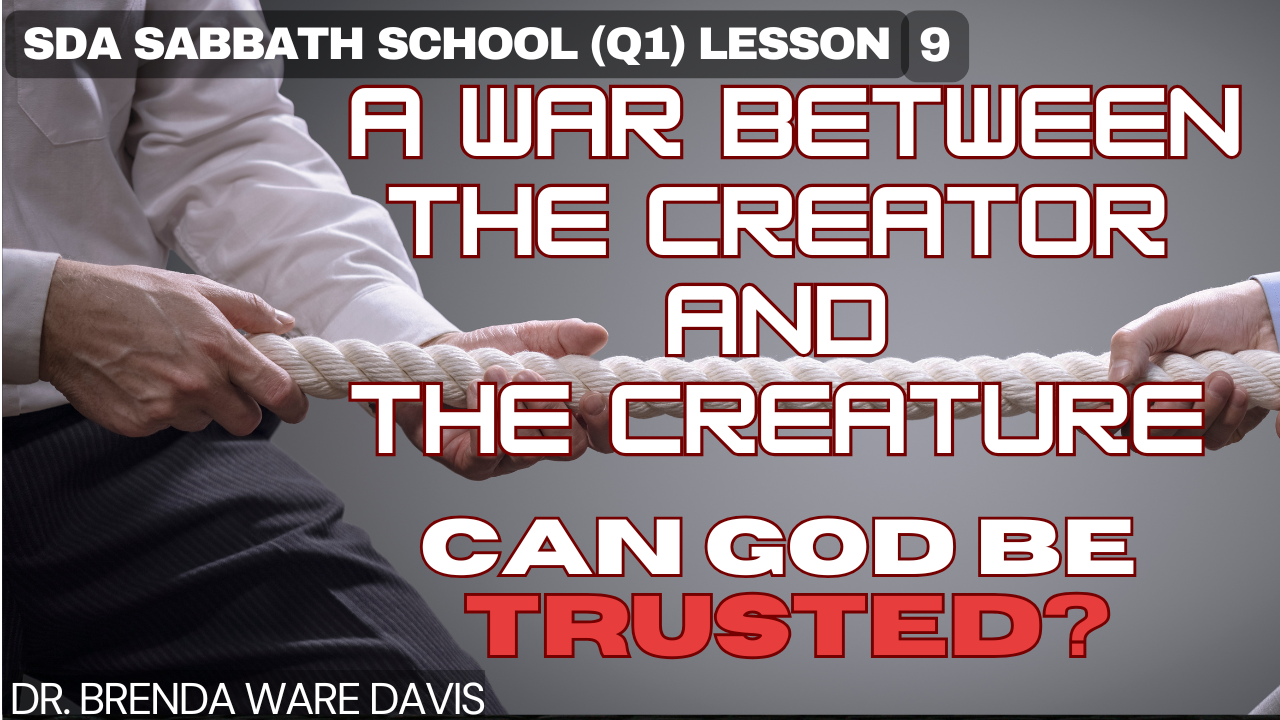SS23, Q1 MANAGING FOR THE MASTER (Lesson 7) Caring for the Least of These Day 1-2: The Life and Ministry of Jesus
OUR DUTY THE POOR: God’s plan for his people was that there be no poor among them. But in a world plaque with sin, evil, selfishness, and greed, poverty will always exist. How, then, should we respond to those in need?
In the Bible, God has provides us with practical guidance on how to live above the stresses of life, and we are given instructions on how to manage the resources He has given us.
In this series,
From a biblical perspective, we are looking at how to manage effectively the resources God has given us while prioritizing What Really Matters.
Review any of our previous lessons @ SabbathSchoolDaily.com.
Also, you can obtain the study guide to these lessons @ Sabbath.School or ssnet.org
Let’s Pray
Holy Father, we are living in trying times in which there are many in need. Give the mind, with the help of the Holy Spirit, to know when to help and when to hold back. In Jesus’ Name, Amen
The Bible, in many places, talks about strangers, the fatherless, and widows. Though many people may not think of these persons as very important. Jesus had a different view of them. As managers of God’s resources, Jesus places their needs as priority.
They are most likely those who Jesus was referring to when, He, in Mathew 25: 34 and 40, talked about the least of these that were helped by his followers
Matthew 25:34
34 Then the King will say to those on His right hand, ‘Come, you blessed of My Father, inherit the kingdom prepared for you from the foundation of the world:
40 And the King will answer and say to them, ‘Assuredly, I say to you, inasmuch as you did it to one of the least of these My brethren, you did it to Me.’ (Matthew 25:34, 40)
This illustration that Jesus gave about the kingdom of heaven demonstrates that He cares about strangers, the fatherless, and the widows.
These individuals in societies today are often deemed unimportant and insignificant. Who are these people? How would Jesus refer to them today? In Bible times, generally, strangers were considered those who left their homeland because of war or because there was famine or no food.
These today could be the poor around us who have lost their homes because of unforeseen circumstances, such as a major illness, loss of a job, or a natural disaster.
The fatherless are orphans who have lost their fathers because of perhaps war, accidents, or sickness. This group also would include children whose fathers are in prison or simply absent from the family for whatever reason. Much help is needed for those in this group.
Widows are women who have lost their husbands, and their husbands have died. In many circumstances, the widows are single parents. This is another group that needs to be attended to.
We understand from our previous lessons that we are managers of God’s business. If you have missed these lessons, go back and view them at SabbathSchoolDaily.com.
Jesus is our example of how we are to prioritize His resources as managers of God’s family business. He expects us to follow his example and obey His commands.
So, it is our duty to help the poor, the strangers, the fatherless, and the widows. How can we do this?
When Jesus first started His work, He traveled to Nazareth. Nazareth is in the region of Galilee.
Nazareth was Jesus’ hometown. Therefore, the local people there in Nazareth already had heard about Jesus’ work and His miracles. Customarily, Jesus attended Sabbath services in the Jewish synagogue there.
One Sabbath, Though Jesus was not the officiating rabbi, the attendant handed Him the Isaiah scroll and asked Him to give the Scripture reading. Jesus read Isaiah 61:1, 2.
1 “The Spirit of the Lord God is upon Me, Because the Lord has anointed Me To preach good tidings to the poor; He has sent Me to heal the brokenhearted, To proclaim liberty to the captives, And the opening of the prison to those who are bound;
2 To proclaim the acceptable year of the Lord, And the day of vengeance of our God; To comfort all who mourn, (Isaiah 61:1-2) (Split)
When we read Luke 4:16–19 in comparison with Isaiah 61:1-2 it helps us understand why Jesus may have chosen this specific Scripture.
Isaiah 61:1-2 was deemed as Messianic. It pointed to the expected savior who would liberate God’s people.
Luke 4:16-19
16 And He came to Nazareth, where He had been brought up; and as was His custom, He entered the synagogue on the Sabbath, and stood up to read. (Split)
17 And the book of the prophet Isaiah was handed to Him. And He opened the book and found the place where it was written,
18 “the spirit of the Lord is upon me, because he anointed me to preach the gospel to the poor. he has sent me to proclaim release to the captives, and recovery of sight to the blind, to set free those who are oppressed,
19 to proclaim the favorable year of the Lord.” (Luke 4:16-19)
Somehow, the religious leaders paid no attention to the verses in Isaiah 53 that talk about a suffering Savior. They only were interested in the promises of deliverance from oppression.
You see, the religious leaders of that day had taught the people to expect those promises to happen at the First Coming of the Messiah.
Let me say that their mistake should help us to remember that we must be careful to make sure that we understand what the Bible is really saying and what a particular scripture really means.
This can happen only if we ask for the aid of the Holy Spirit. This is why it is important to pray every time we attempt to study, read and even listen to the scriptures.
So, most of the people in Jesus’ day had a false idea about the Messiah or Savior’s work.
They believe that the Messiah was coming to free Israel from Roman oppression. But instead, Jesus let them know that Isaiah 61:1, 2 talks of the Messiah’s work.
Jesus, the Savior, did not come to release them from Roman oppression. He came to proclaim good news to the poor, to bind up the brokenhearted, to proclaim liberty, and freedom to the prisoners, to comfort all of those who mourn, to proclaim the favorable year of the Lord and the day of vengeance of the Lord.
This news was not what the Jewish people were looking for! The dishonest officials, such as the tax collectors, businessmen, and rich Jews, could care less about the underprivileged poor. Their concern was not for the poor.
As a matter of fact, many felt that God cursed the poor. The Jews blamed the poor for not having money or land. Few people cared for the poor or their condition.
But Jesus loves the poor. His love for the poor is powerful evidence of His Messiahship.
Matthew 11:1–6 tells us how Jesus answered John the Baptist when he asked if Jesus was the Messiah.
1 Now it came to pass, when Jesus finished commanding His twelve disciples, that He departed from there to teach and to preach in their cities.
2 And when John had heard in prison about the works of Christ, he sent two of his disciples
3 and said to Him, “Are You the Coming One, or do we look for another?”
4 Jesus answered and said to them, “Go and tell John the things which you hear and see:
5 The blind see and the lame walk; the lepers are cleansed and the deaf hear; the dead are raised up and the poor have the gospel preached to them.
6 And blessed is he who is not offended because of Me.” (Matthew 11:1-6)
The thing is, according to the Book Desire of Ages, even John the Baptist didn’t understand Jesus’s kingdom.
“Like the Saviour’s disciples, John the Baptist did not understand the nature of Christ’s kingdom. He expected Jesus to take the throne of David, and as time passed, and the Saviour made no claim to kingly authority, John became perplexed and troubled.”—Ellen G. White, The Desire of Ages, p. 215.
So, what does Jesus expect from those who are the managers of his resources? James 1:27 tells us what God expects and it lets us know how we should prioritize God’s resources.
“Pure and undefiled religion before God and the Father is this: to visit orphans and widows in their trouble, and to keep oneself unspotted from the world” (James 1:27, NKJV).
Our priority should be to help the poor and keep ourselves from being contaminated by the evils of this world, the love of money!
God’s concern for the poor is so important that in instructing the Israelites he made provision for them. What were those provisions: Find out in Day 3: God’s Provisions for the Poor.
If you wish to return tithe or give an offering, consider giving online,
@ Adventistgiving.org
my local Church:
Hebron Seventh-day Adventist Church 7902 Wheatly Street Houston, TX 77088
Watch Past and Present Lessons @ SabbathSchoolDaily.com














Post Comment